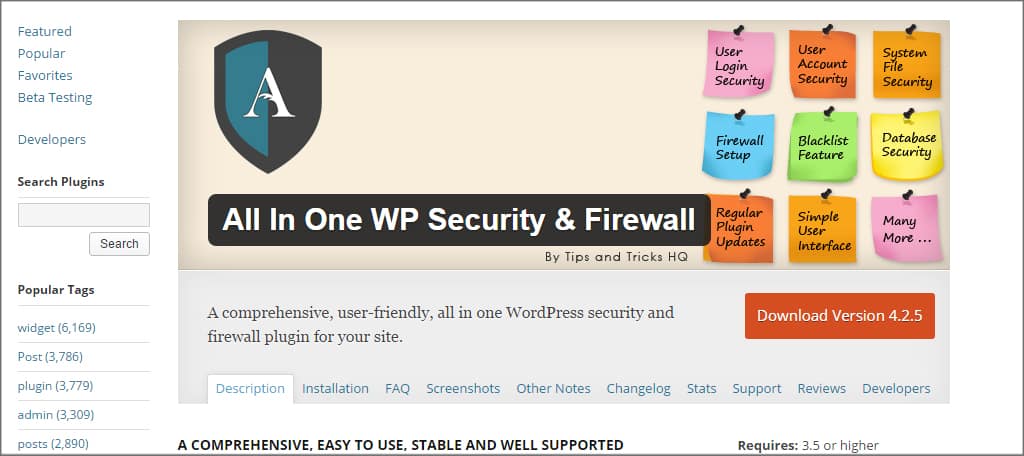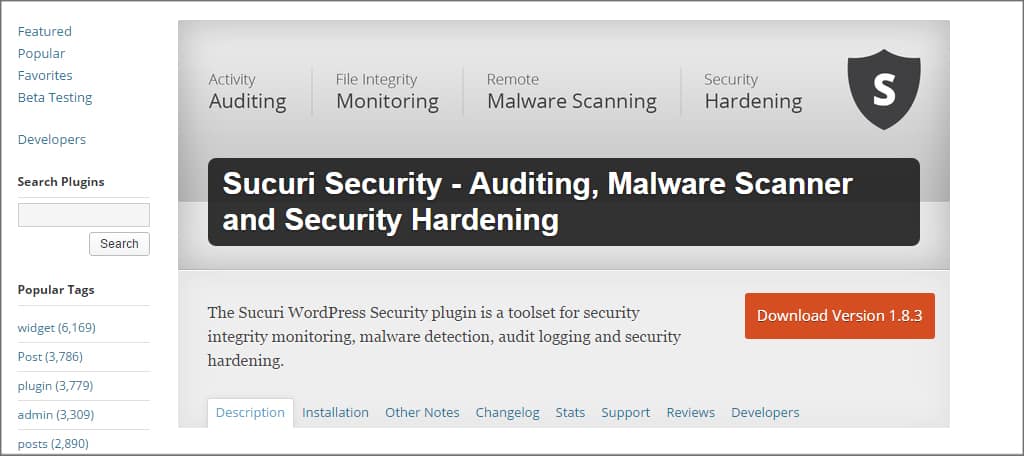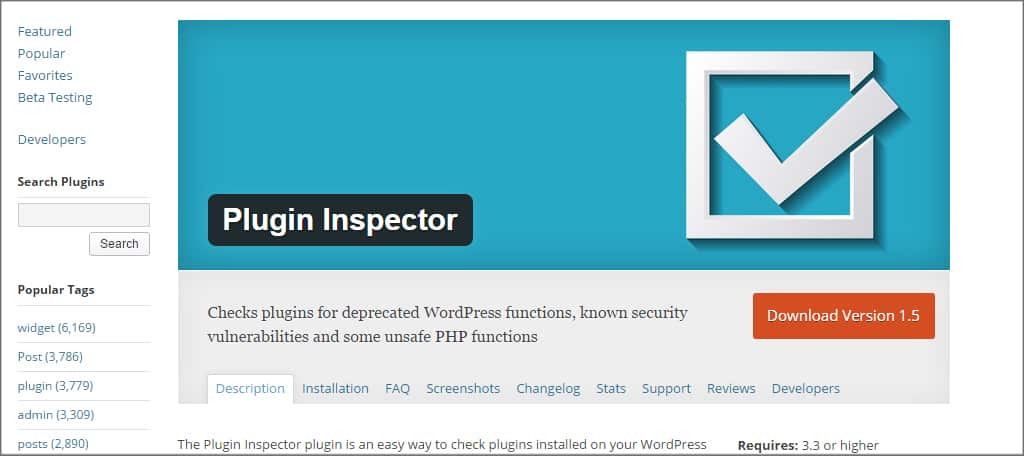Keeping a website safe should be on the minds of any owner or developer. Not only do you have to worry about external threats trying to hack your content, but there may be internal ones you might not notice. An exploit scanner will help discover these issues, which will enhance the security of your site.
In this tutorial, I’m going to show you some of the more effective WordPress scanner plugins that anyone can use. They are among some of the most trusted additions and most will work exceptionally well without buying a “pro” version.
What kind of security problems could bad coding do to the website?
When people think of bad coding, many will immediately think of hackers. Because data theft is such a rampant problem, many will rush to safeguard their information. It doesn’t matter if your site is a blog about dogs or you’re trying to build a WP eCommerce powerhouse, the criminal element has no prejudice about what material is taken.
Stealing data isn’t the only way to attack a website, though. Some will simply inject code to use as a platform for spamming. Without an exploit scanner, someone could essentially steal your email address and use your servers to send hundreds upon hundreds of spamming emails.
Email is only part of the problem. Your site could also house a fake “website” and lure unsuspecting victims to its pages for a variety of reasons. For instance, making a faux PayPal page is a common practice to steal usernames and logins. In fact, many of the major brands online are targets for this kind of cloning.
Let’s set aside the criminal element for a moment. Bad coding can lead to additional problems within the website. If a developer forgets certain aspects of the code, it could cause the site to break or inadvertently create exploits.
Even the most innocent of circumstances could have serious consequences in safety, security and overall functionality.
Protecting Your Site with a WordPress Scanner
Today, I’m going over some of the best tools for keeping the site secure and functional. Although many of these tools are very useful in their free element, it’s not a bad idea to consider purchasing the premium versions.
Security plugins for WordPress are always a good way to shield the site from various problems.
All In One WP Security & Firewall

The All In One WP Security plugin is just as it sounds. It protects the site from a variety of issues while acting as a WordPress scanner. This tool will send you an alert as soon as any file experiences a change. From the log, you can determine if these changes were part of the site’s development or if bad code was added with you knowing.
Another feature that makes this a great tool is the ability to scan the database as well. After all, files and coding are not the only things that can be targeted. This includes JavaScript, suspicious strings and other code in various tables of the WordPress core.
Sucuri Security

Sucuri Security is another one of the more popular scanning plugins for WordPress. It’s an exceptionally powerful system that has a wide scope of options when it comes to monitoring the website. One of the reasons why so many people enjoy this plugin is because it’s a free plugin.
Sucuri features activity logging, file integrity scanning, monitoring for remote malware, black listing and hardening site security. At a glance, users can see problems as they are identified through security notifications from the admin dashboard in WordPress. The only real purchasable option in Sucuri Security is the CloudProxy Firewall, which is an add-on service.
Anti-Malware Security and Brute-Force Firewall

While not as popular as the above tools, Anti-Malware Security and Brute-Force Firewall comes with several tools that make it a great addition. One of the reasons I added it to this list is because it’s highly rated among users as a WordPress scanner.
Anti-Malware will constantly check the WordPress core files to make sure their integrity is still strong. Plugins are also scanned to discover exploits in coding to prevent hackers form taking advantage. It will download new definitions for scanning during updates automatically. It may be important to note that this plugin also adds a patch to the wp-login and XMLRPC files to stop brute force attacks.
Plugin Inspector

Highly rated among users, Plugin Inspector is perhaps one of the youngest tools in this list. However, it’s effective when it comes to identifying problematic plugins that may be developed poorly or has other security vulnerabilities. Using the WPScan database, it will compare what you have installed against known issues.
Because not all programmers put the same amount of care into development, Plugin Inspector analyzes the coding to find unsafe functions as well as exploits. It also comes with a source code viewer with the ability to highlight areas that need adjustments or area of particular interest. Reports are displayed in the WordPress admin panel and will alert you the type of issues that are discovered.
Shieldfy Security Firewall and Anti Virus

Another newer plugin in this list is Shieldfy Security Firewall and Anti Virus. While it’s good at scanning for malware, it also has capacity as an exploit scanner. It comes with blacklisting abilities for IP addresses and uses an easy to follow dashboard.
This tool can inspect and prevent attacks including SQL injections, remote file inclusions and cross site scripting. Its engine goes through the code and analyzes any part of the site for bad coding whether it’s from malware or shell access. It’s programmed with known patterns of malware while keeping an eye out for suspicious code using a set of algorithms designed by the developer.
4 Security Tips for WordPress
- Create a New Admin:
One way to avoid brute force attacks is to create a new admin account. Most installations still have the default “admin” login, which hackers and bots try to force to discover passwords. Add a new administrator, give it a name and then delete the old “admin.” - Always Have a Backup Plan:
It’s always good to have a few backups on hand in the event a problem is found. With a simple restore, you are able to revert the site back to what it was before the problem started. Just make sure you plug any holes that caused the issue in the first place. - Always Use Trusted Add-ons:
WordPress is notorious for having a vast supporting community creating thousands and thousands of plugins and themes. However, not everyone has good intentions or has good skills in programming. Always trust the additions you install, and run an exploit scanner after each addition to keep the site safe. - Use an SSL Certificate:
Secure Socket Layers are a great way to keep visitors safe as well as adding protection to your site. Although there is a nominal annual fee for these, they keep your content protected in addition to being a smart SEO strategy.
These security tips for WordPress will make a big difference in the amount of downtime you might experience. No one like the idea of losing the site to the criminal element or crashing pages because of bad coding. Be vigilant, and always take security seriously when it comes to your WordPress website.
What kind of additions do you use for security? How do you keep your site safe from the hackers and bad programmers of the world?

I tried a nulled plugins lastly but receive so many attacks from unknown ppl trying to scam me or snatching my website away.
Better buy secure plugins!!